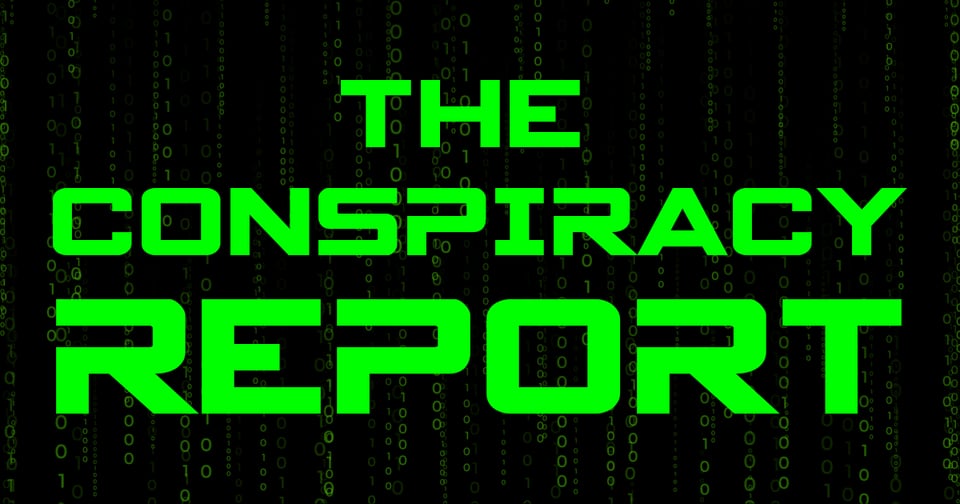
Anytime you hear of an organization that has the words “Federal” and “Management” in its name, you’re probably already worried.
Time and time again, the federal government has proven that its programs are inefficient, overly expensive, and staffed and run by incompetents whose main skill is politically connecting with the administration that appointed them.
Federal agency actions in reality are usually contrary in their results to their stated purpose. Their utility in the situations in which they were designed to manage is at best, questionable, and at worst, non-existent.
Those who have suffered in weather related disasters in our country over the last twenty years, have had first-hand experience with FEMA, the Federal Emergency Management Agency. It’s an entity that is more of a disaster than the disasters in which it is supposed to assist.
Students of history and the actions of federal agencies are unlikely to be surprised.
Let’s take a look under the rock and see what the reality of FEMA is.
What’s the overall verdict on FEMA? ‘It is slow, risk averse, subservient to politics, and it does not have the local knowledge needed to effectively handle many disasters.’
The 2005 disaster that was hurricane Katrina, demonstrated FEMA inaction in action as it ‘blocked the relief efforts of other organizations. FEMA’s dismal response to Hurricane Katrina in 2005 dramatized the agency’s bureaucratic dysfunction.’[1]
What did FEMA learn from its failures in 2005? Good question, and in 2017 with the Puerto Rican hurricane disaster we got the answer: ‘The Federal Emergency Management Agency failed to properly prepare for last year's (2017) hurricane season and was unable to provide adequate support to hurricane victims in Puerto Rico and other areas.’
That conclusion came from FEMA itself.[2]
Apparently in a dozen years since Katrina, the agency learned nothing.
Let’s go back to that 2005 Katrina fiasco. Obviously, with a disaster of that magnitude, there are going to be a whole bunch of homeless people who have lost everything in the wake of the winds and rain of the hurricane.
They needed emergency housing. FEMA to the rescue? Not quite.
To house the homeless, here’s what FEMA did: ‘FEMA paid for 25,000 mobile homes costing $900 million, but they went virtually unused because of FEMA’s own regulations that such homes cannot be used on flood plains, which is where most Katrina victims lived.’
Besides that act of genius, FEMA blocked the delivery of emergency supplies, blocked physicians coming to assist, refused train and bus entities seeking to voluntarily transport the homeless, and delayed shipments from foreign nations seeking to provide supplies.[3]
Now any agency, whether private or governmental, consists of workers supposedly entrusted to fulfill the purposes of the agency for which they work. In order to have the right people and the right number of people, hiring and selection methods need to function properly.
FEMA? Well, the Government Accounting Office, the GAO, issued a report in 2023 that concluded:
‘FEMA lacks documented plans and performance measures to monitor and evaluate its hiring progress within cadres (workforce groups) toward the larger disaster workforce goal. Without documented plans and measures, such as cadre net growth targets, it is difficult for FEMA to determine how effective hiring efforts are at closing staffing gaps and prioritizing hiring efforts within the disaster workforce accordingly.’[4]
Perhaps, in 2025, President Donald J. Trump has a better idea — to dismantle the disaster that is the disaster agency and defund FEMA.
He recognizes what many observers of this malfunctioning entity realize: ‘states would best take care of hurricanes, tornadoes and wildfires on their own, with the federal government reimbursing some of the costs. He convened a council to review FEMA and recommend “improvements or structural changes.”’[5]
He’s quoted as saying, ‘I think when you have a problem like this, (national disasters) I think you want to go and — whether it’s a Democrat or a Republican governor, you want to use your state to fix it and not waste time calling FEMA.’[6]
Why You Should Care
Many of the readers of this article have experienced disasters in their region first-hand. They are familiar with the confusion and lack of coordinated efforts a major weather or fire event can generate.
Relief is needed immediately in such situations, or at least as close to immediate as is possible. What is not needed are extraneous levels of government bureaucracy which impede that needed assistance.
What is not needed is another agency which wastes hundreds of millions of taxpayer money in a late and inefficient response to disasters that provide no practical value. For instance, the nine hundred million FEMA spent on trailer housing for the victims of Katrina, which its own regulations prohibited from being used.
It’s the tendency of any bureaucracy once created, to seek to expand its power, its reach and its funding which facilitates the other two. That tendency is a breeding ground for inefficiency and incompetence.
When it comes to saving the lives and property of our citizens in the United States of America, (of which the reader is likely one) in a disaster situation, bureaucratic bumbling can mean an exacerbation of the damage caused by natural disasters. It can mean more death, more damage, more destruction.
It’s clear that FEMA has a history of failure, and a failure to learn from those failures. The Trump approach to reappraising the need for this agency to exist is likely the appropriate one.
The money wasted on this poorly performing Federal agency, can be reallocated to the states which historically, have been the most rapid and efficient suppliers of aid and comfort to its residents during times of disaster.
[1] Chris Edwards December 1, 2014 DOWNSIZING THE FEDERAL GOVERNMENT https://www.downsizinggovernment.org/dhs/fema
[2] FEMA Report Acknowledges Failures In Puerto Rico Disaster Response JULY 13, 2018 npr By Laura Sullivan https://www.npr.org/2018/07/13/628861808/fema-report-acknowledges-failures-in-puerto-rico-disaster-response
[3] Hurricane Katrina: Remembering the Federal Failures By Chris Edwards 8/27/15 CATO AT LIBERTY https://www.cato.org/blog/hurricane-katrina-remembering-federal-failures
[4] FEMA Disaster Workforce:Actions Needed to Improve Hiring Data and Address Staffing Gaps Published: May 02, 2023. Publicly Released: May 02, 2023. https://www.gao.gov/products/gao-23-105663
[5] Trump wants states to handle disasters without FEMA. They say they can’t. BY: ALEX BROWN AND KEVIN HARDY - FEBRUARY 6, 2025 https://stateline.org/2025/02/06/trump-wants-states-to-handle-disasters-without-fema-they-say-they-cant/
[6] GOVERNING, Trump Moves to Abolish FEMA, Shift Disaster Response to States https://www.governing.com/resilience/trump-moves-to-abolish-fema-shift-disaster-response-to-states
